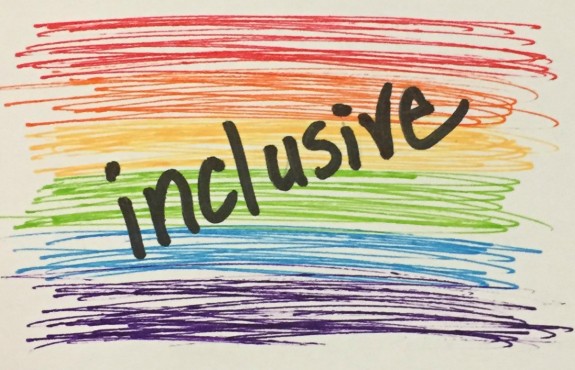
Inclusivity in the Workplace: A Transgender Perspective

The first step to creating an inclusive work environment is to listen to colleagues from underrepresented groups to better understand their concerns. As a transgender student, I thought it might be helpful to share some reflections regarding the kinds of awarenesses that can make the workplace more respectful to transgender employees. Though I can not possibly speak for all transgender people, this article highlights some of my top concerns and those of another trans student at Kenyon regarding entering the workforce.
President Trump's and Caitlyn Jenner’s recent twitter war regarding public bathroom use for transgender people and our right to serve in the military has brought into the national spotlight the kinds of debates and dilemmas that the transgender community has been facing for years when advocating for equality. That said, many important transgender equality issues never go viral or make the front page but affect millions of people every day. These include the many ill-informed transgressions that well-intended people make when interacting with transgender coworkers.
The line between informative and invasive inquiries often gets crossed when cisgender people--people who identify as the same gender they were assigned at birth--ask trans people about their identities and experience while at work. For example, a fellow employee asking me what pronouns I use so they know how to refer to me requires an informative response. However, asking me questions about various surgeries that I have undergone or plan to consider is invasive. It asks me to disclose private information that does not feel appropriate in a professional context and it inhibits my ability to be an effective worker.
Robyn-Phalen ’18, a fellow trans woman, also reflected on this topic. “In general, cis people will support me overly performatively. So it’ll be like, ‘Oh yeah, that's great! We love you. You're so brave!’ when you tell them. But in some ways, they are expecting you to put an ordinance on teaching cis people what it’s like to be trans.”
Trans people, like other workers shouldn’t be expected to be educators of our identities at our worksites, unless we feel comfortable doing so by taking that initiative. Similar to my cisgender colleagues, I would like to focus on providing my best work. However, trans people’s ability to produce effective work can be inhibited if we are regularly asked to educate co-workers about our experience of being trans. Not to mention, these inquiries can be extremely off-putting and time consuming. Instead of asking trans people question about our experiences, I suggest channeling that curiosity in more appropriate ways.
At Kenyon we are asked to be critical thinkers, ethical learners, and to demonstrate intercultural competency. As students and alumni, we can and should bring these same expectations of ourselves to the workplace. Doing this with regards to gathering data about trans co-workers’ experience might mean looking up internet resources like the website transequality.org where information to empower trans people and to educate cis people can be found. This site and many other amazing online resources written by trans people and experts on trans issues are extremely informative.
In addition to clarifying issues like bathroom policies, pronoun use, and informative questioning, it is also important to keep in mind that trans people can experience significant concern about the job search and/or hiring process. Robyn-Phalen again comments; “I think that's the scary thing about going to the job market— not knowing who will just not hire you because you're trans.” To this point, it can be helpful if employers make their support for transgender employees explicit. In a world that has been overwhelmingly invalidating towards trans people, we can often translate a company’s silence on transgender inclusion as negative. Companies open to supporting trans people in the workplace can make that support known through institutional channels like Human Resource policies advertised on their website, and in statements of inclusivity made as a standard part of the interview process.
Ultimately, I believe the work that needs to be done to make the workplace more inclusive is more intricate than anything that can be characterized as “Political Correctness.” I believe that the work needed to create a professional culture that practices equality is to increase our capacity to care; where caring is a combination of being well-intentioned and well-informed. It is true that this takes time, and we will all sometimes stumble and make mistakes. However, taking the steps to reflect on both our accomplishments and shortcomings when it comes to practicing equality, and making the necessary adjustments toward continual refinement is key to ushering in workplaces that are fully inclusive of everyone.
By Juniper Cruz ‘19